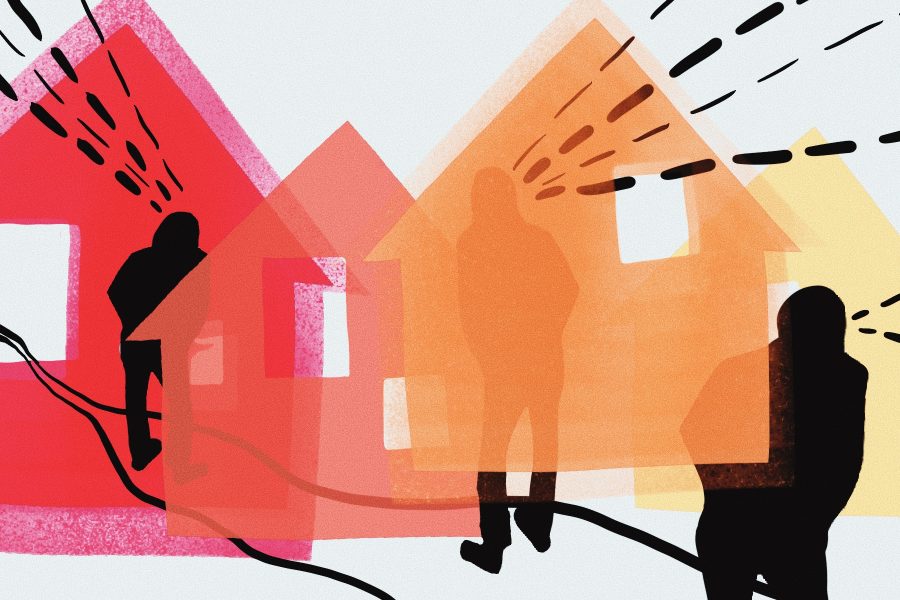Amid a global pandemic, no one should have to worry about having a place to live.
If you are struggling or unable to pay rent on April 1, you are not alone. While making rent in Austin has never been an easy feat, the COVID-19 pandemic has made it drastically more difficult. As we are told to shelter in place, the long term security of that very shelter is looking less and less certain.
Rent will be due in a matter of days. Many Austinites won’t be able to pay it.
The City of Austin ordered a 60-day halt of evictions and utility cutoffs, and Travis County has postponed all eviction hearings until May 8, but it isn’t enough. As unemployment skyrockets to Great Depression levels, many will be without a source of income for months. Regardless, tenants will still have to pay rent.
It’s critical that in this crisis, tenants begin collectively organizing a rent strike to demand rent freezes or reductions.
This fight cannot be fought alone — it requires buildings to work together to organize. Staging a truly successful rent strike requires an organized group of tenants withholding rent until their demands are negotiated and met. Even those not organizing or in a position to undertake a rent strike can begin forming tenant councils, writing collective letters and agitating for their demands in other ways.
Organizers are already working across Austin to make this a reality, and there are resources available to help you begin organizing in your building. To get connected with those organizing for a citywide rent strike and the resources that they have available, fill out this form in English or Spanish, and share them with friends and neighbors.
With just days until April rent is due, it may not be feasible to organize for collective action for the next rent payment. However, it is possible to begin building the foundation for collective action to happen in the months to come. Here are some of the first steps to take:
1. Make sure you know who your landlord or leasing company is, and study your lease. If you are a UT student and need assistance understanding your lease, contact Legal Services for Students. If not, Rent Strike ATX can help connect you with legal resources.
2. Reach out to your neighbors, share literature and information on organizing, and expand your network until you are in contact with as much of your building as possible. For students out of Austin and to promote social distancing, social media is a great way to reach out and stay connected.
3. Develop a plan of action and draft demands for your landlord, be they a rent freeze or reduction.
Don’t strike until you have the vast majority — if not all — of your complex striking with you. While the city of Austin has ordered a 60-day halt of evictions, as of now proceedings will start again June 1. The goal of a rent strike is to empower tenants to collectively negotiate with their landlords, not potentially hurt them with legal fees or bad credit.
There is never a bad time to build tenant power. Forming a tenant council, or even just creating a stronger community in your building are both vital means of empowering yourself and your neighbors to act in the future. With stays on evictions and many without the means to pay rent, now is a great time to start — your landlord legally cannot retaliate against you for organizing.
Sadly, there are few other protections for tenants in Texas, especially those striking rent. The power of organized tenants, however, could lobby to change that.
Whether or not we are striking rent in our complexes or our city, many Austinites will not be able to make rent April 1. We must stand in solidarity with our neighbors in vulnerable positions. Even for people with the means to pay rent, organizing with your neighbors who lack resources builds and protects communities.
If you are a UT student and are not sure you’ll be able to make rent, apply for assistance from the Student Emergency Fund. All students facing hardship are eligible for up to $300 in relief which does not have to be paid back.
The City of Austin is also providing resources for those in need. Here you can find information on accessing food banks, mental health resources, temporary free Wi-Fi connections and other goods and services. Assistance from UT and the City of Austin does often come with qualifications and restrictions, however, and may not be accessible to all who apply.
Mutual aid funds and organizations are also providing resources for those who need them. Mutual Aid Collective ATX has put together a spreadsheet of resources — from food to financial assistance to health services — available online and to those in the Austin area.
Everyone deserves the security of having a place to live, especially in times of crisis. Rent striking is a feasible, powerful and effective way to protect yourself and your neighbors. Organize now and build tenant power for years to come. The power is in our hands if we choose to take it.
Spencer Buckner is a Plan II junior from Austin. He is the editor-in-chief. Rent Strike ATX is a collective of tenants in so-called Austin collaborating to provide support to residents organizing, as well as providing mutual aid and meeting basic needs.





















